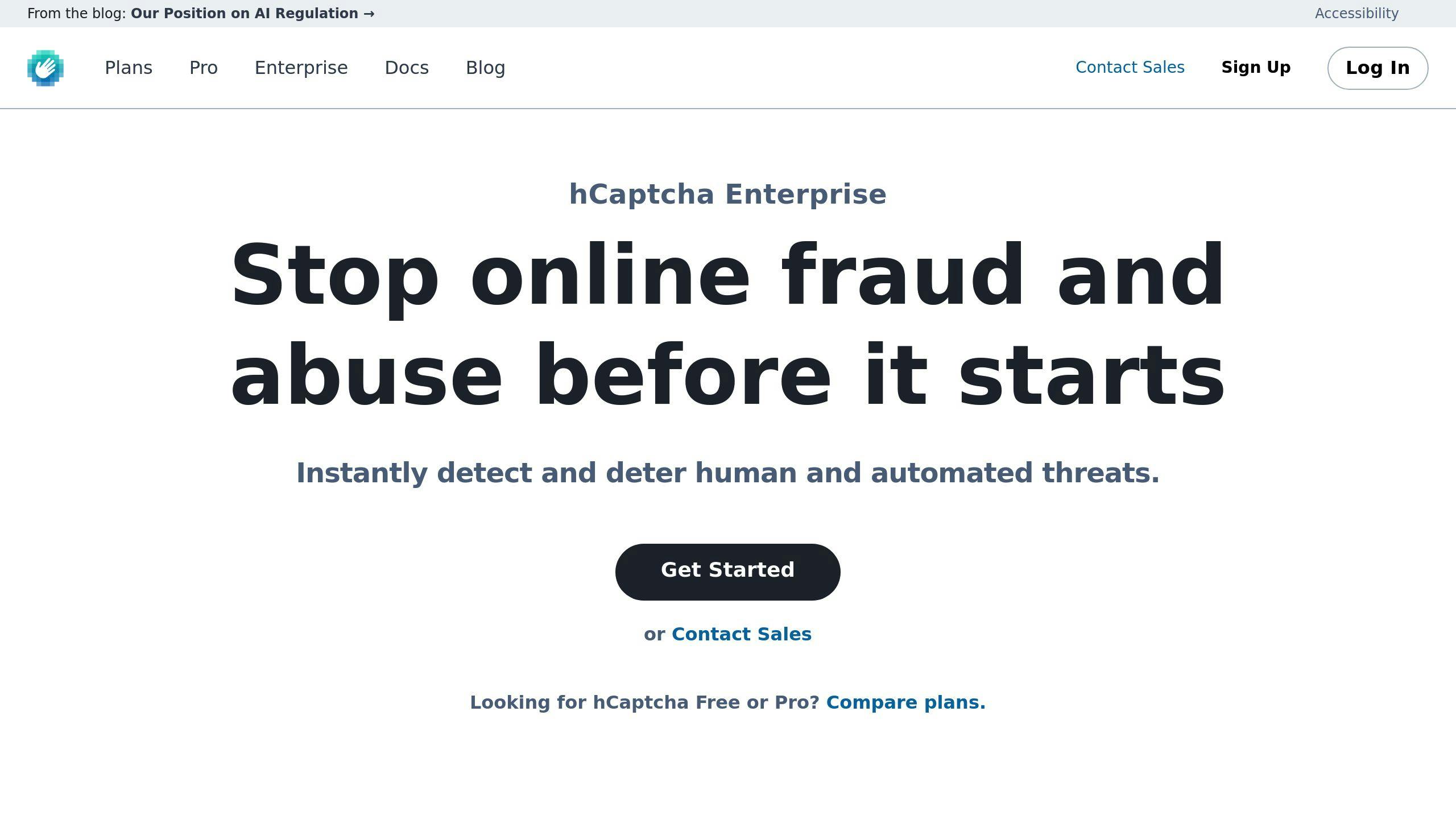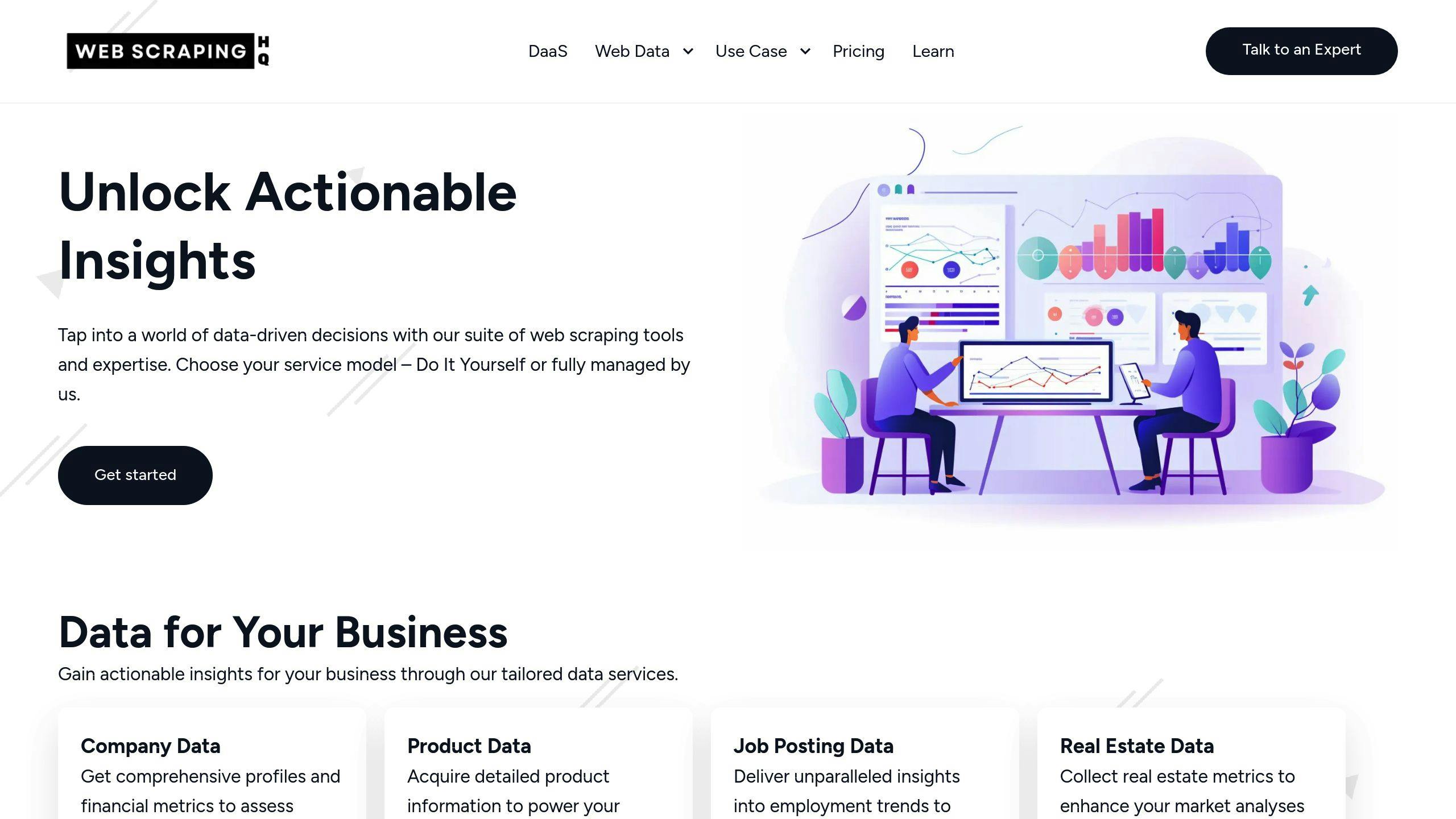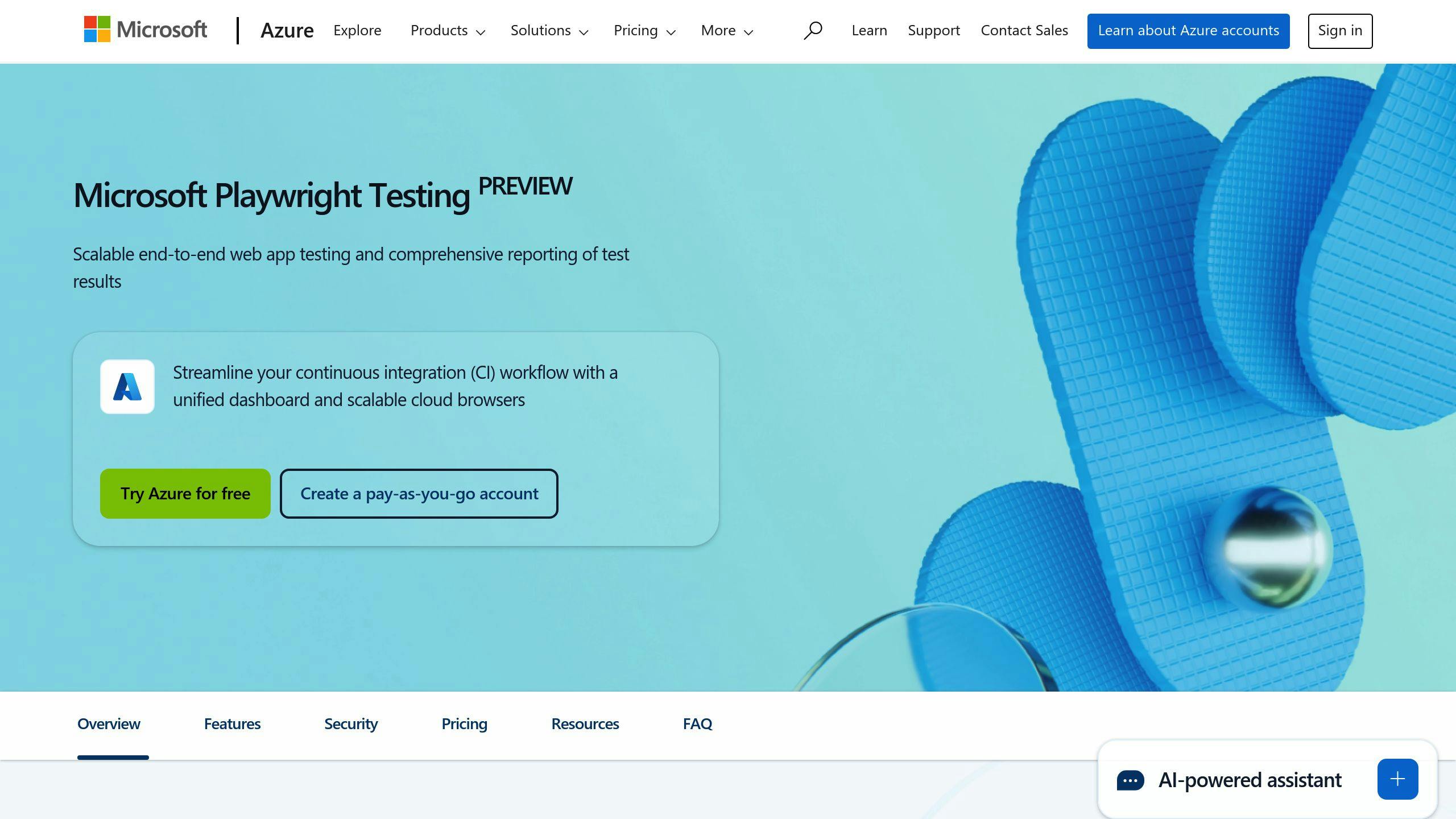
- Harsh Maur
- December 23, 2024
- 6 Mins read
- Scraping
How to Handle Captchas in Web Scraping
CAPTCHAs are designed to stop bots, making them a major challenge for web scraping. But with the right tools and techniques, you can bypass or minimize their impact effectively. Here's a quick summary of how to handle CAPTCHAs:
- Types of CAPTCHAs: Image-based, text-based, and advanced systems like reCAPTCHA and hCaptcha.
-
Solutions:
- Use anti-captcha tools like AntiCaptcha or Crawlbase.
- Leverage OCR tools like Tesseract for text and image-based CAPTCHAs.
- Employ headless browsers (e.g., Selenium, Playwright) to mimic human behavior.
- Implement JA3 fingerprinting for advanced browser emulation.
-
Best Practices:
- Rotate IPs and user agents.
- Mimic human-like browsing patterns.
- Stay compliant with legal and ethical guidelines.
How to Bypass CAPTCHA in Web Scraping Using Python
Types of Captchas You May Encounter
Knowing the different CAPTCHA types can help you tackle web scraping challenges more effectively. Here's a breakdown of the main categories:
Image-Based Captchas
These CAPTCHAs, such as reCAPTCHA v2, involve tasks like identifying objects in images or arranging them in a specific way. They can be tricky for automation because they rely on visual recognition. Tools like TESSERACT, GOCR, and OCRAD use advanced OCR (Optical Character Recognition) technology to tackle these challenges.
Text-Based Captchas
Text-based CAPTCHAs are still widely used, especially on websites with simpler security needs. They typically feature distorted or obscured text with varying fonts, background noise, and overlapping characters. Solving them often requires OCR tools capable of handling these distortions. Although these CAPTCHAs are generally easier to crack than newer types, they still demand robust OCR solutions for automated processing.
Advanced Captchas (reCAPTCHA, hCaptcha, etc.)

Modern CAPTCHA systems have taken security to the next level. Examples like reCAPTCHA v2, v3, and hCaptcha use behavioral analysis, machine learning, and customizable challenges, making them tougher to bypass. For instance, hCaptcha, developed by Intuition Machines, focuses heavily on privacy and security. Specialized tools like AntiCaptcha or ScrapFly are often needed to handle these advanced systems effectively.
With an understanding of these CAPTCHA types, you’ll be better prepared to explore the tools and techniques for solving them.
Ways to Solve Captchas in Web Scraping
Using Anti-Captcha Tools
Anti-captcha services can handle even the toughest captcha challenges during web scraping. Tools like AntiCaptcha, Crawlbase, and CapSolver offer APIs that integrate directly into your scraping scripts, making captcha-solving more efficient [4].
Here’s an example of how you can use AntiCaptcha in Python:
from anticaptchaofficial import AnticaptchaClient
client = AnticaptchaClient(api_key='YOUR_API_KEY')
solution = client.solve_and_return_solution()
print("CAPTCHA Solved:", solution if solution else "Error:", client.error_code)
These services are particularly effective for complex captchas, but for simpler, text-based ones, OCR technology can often do the job.
Using OCR to Solve Captchas
OCR (Optical Character Recognition) is a great option for extracting text from image-based captchas, especially those with basic text distortions. Tools like Pytesseract make it easy to automate this process.
Here’s a quick example:
from PIL import Image
import pytesseract
image = Image.open('captcha_image.png')
text = pytesseract.image_to_string(image)
print(text)
However, when captchas involve behavioral analysis, you’ll need a different approach, such as simulating user interactions.
Using JavaScript and Headless Browsers
Headless browsers like Selenium, Puppeteer, and Playwright are effective for bypassing captchas by imitating real user behavior. These tools execute JavaScript and render web pages just like a regular browser, helping you navigate captcha-protected sites. Each has its strengths: Playwright supports multiple browsers, while Puppeteer excels on JavaScript-heavy pages.
For better results, combining methods is often the way to go. For example, pairing headless browsers with anti-captcha services can improve success rates and keep your scraping workflow smooth.
sbb-itb-65bdb53
Tips for Avoiding Captchas
Rotating IPs and User Agents
Using proxy services like ScrapFly can help spread requests across different IP addresses, making your activities less noticeable. This approach reduces the chances of triggering captchas by making your scraping efforts look more natural.
Mimicking Human Behavior
Websites often use algorithms to spot bots. To avoid detection, make your scraper act more like a real user. Tools like Puppeteer can simulate realistic interactions.
Here are some human-like behaviors to incorporate:
- Add random delays between requests (e.g., 2-10 seconds)
- Use natural mouse movements and clicking patterns
- Vary scrolling depths and speeds to mimic real browsing
Staying Within Legal Boundaries
Respecting website rules and sticking to ethical practices can also help reduce captcha triggers. Combining technical solutions with compliance ensures a safer and more reliable scraping process.
Key practices to follow:
- Use rate limiting to manage how often requests are sent
- Include appropriate request headers
- Focus only on publicly available data
"Staying within legal boundaries ensures ethical scraping practices and reduces the risk of detection. For example, Web Scraping HQ emphasizes the importance of legal compliance in their managed web scraping services."
Advanced Tools and Services for Captcha Handling
Using JA3 Fingerprinting for Browser Emulation
JA3 fingerprinting is a powerful method for bypassing Captchas, offering a step up from tools like OCR and anti-captcha services. This technique mimics the unique browser signatures generated during secure web connections, helping your scraping requests look more like genuine human activity.
JA3 fingerprinting improves browser emulation by:
- Mimicking browser-like connection patterns.
- Ensuring consistent browser signatures.
- Boosting trust levels to lower the chances of triggering Captchas.
"ScrapFly uses JA3 fingerprinting to bypass Captchas by mimicking the requests' configuration of normal human behavior on a web browser".
Managed Web Scraping Services from Webscraping HQ

For businesses needing a complete solution to handle Captchas, managed services can be a dependable option. Web Scraping HQ utilizes advanced techniques like JA3 fingerprinting and automated Captcha solving to deliver efficient data extraction.
Key advantages include:
- Automated handling of even the most complex Captcha systems.
- Use of multiple bypass methods for better success rates.
- Consistent performance across large-scale projects.
- Regular updates to stay ahead of evolving security measures.
The success of these tools depends on their proper setup and the ability to adapt to new challenges. For companies managing large-scale operations, services like Web Scraping HQ seamlessly integrate advanced techniques into their processes.
Conclusion
Key Takeaways
Dealing with Captchas effectively requires a mix of technical know-how and strategic planning. Tools like reCAPTCHA and hCaptcha are constantly improving their ability to detect bots. For successful web scraping, you need a thoughtful strategy that blends technical solutions with smart practices.
Here’s what a strong Captcha-handling plan should include:
- Integrated Tools: Using anti-captcha services, OCR technology, and JavaScript-based tools alongside methods like IP rotation and mimicking human behavior can help minimize Captcha challenges.
- Modern Techniques: Leveraging browser emulation and fingerprinting ensures more consistent results.
- Responsible Practices: Staying within website guidelines and using ethical scraping methods promotes long-term feasibility.
Practical Tips
For web scraping projects that involve Captchas, focus on approaches that can keep up with changing security systems.
"To bypass reCAPTCHA while scraping, we can focus on the following details..." - Scrapfly
Some helpful recommendations include:
- Tailored Solutions: For large-scale scraping, platforms like Web Scraping HQ provide specialized tools that manage Captchas effectively while adhering to legal standards.
- Stay Updated: Regularly refine your tools and methods to handle the latest Captcha systems.
- Prioritize Ethics: Combine efficient data collection with responsible and ethical practices.
FAQs
Can Playwright Handle CAPTCHA?

Playwright minimizes CAPTCHA triggers by simulating real browser behavior. It supports features like custom headers and cookie management, which help make your actions appear more human-like. However, to solve CAPTCHAs, you’ll need external tools such as anti-CAPTCHA services or OCR solutions. Combining Playwright with methods like IP rotation and responsible scraping techniques can make CAPTCHA handling more efficient.
Does CAPTCHA Prevent Web Scraping?
CAPTCHAs are designed to slow down web scraping but aren’t unbeatable. Techniques like IP rotation, browser fingerprinting, and OCR can help bypass these challenges.
"CAPTCHAs can prevent web scraping by providing challenges that are hard for computers to solve, quickly identifying suspicious users and modern bots"
For consistent results, consider using specialized services that integrate OCR, browser emulation, and even human-assisted solving. This approach allows for effective data collection while adhering to website terms of service.
FAQs
Find answers to commonly asked questions about our Data as a Service solutions, ensuring clarity and understanding of our offerings.
We offer versatile delivery options including FTP, SFTP, AWS S3, Google Cloud Storage, email, Dropbox, and Google Drive. We accommodate data formats such as CSV, JSON, JSONLines, and XML, and are open to custom delivery or format discussions to align with your project needs.
We are equipped to extract a diverse range of data from any website, while strictly adhering to legal and ethical guidelines, including compliance with Terms and Conditions, privacy, and copyright laws. Our expert teams assess legal implications and ensure best practices in web scraping for each project.
Upon receiving your project request, our solution architects promptly engage in a discovery call to comprehend your specific needs, discussing the scope, scale, data transformation, and integrations required. A tailored solution is proposed post a thorough understanding, ensuring optimal results.
Yes, You can use AI to scrape websites. Webscraping HQ’s AI website technology can handle large amounts of data extraction and collection needs. Our AI scraping API allows user to scrape up to 50000 pages one by one.
We offer inclusive support addressing coverage issues, missed deliveries, and minor site modifications, with additional support available for significant changes necessitating comprehensive spider restructuring.
Absolutely, we offer service testing with sample data from previously scraped sources. For new sources, sample data is shared post-purchase, after the commencement of development.
We provide end-to-end solutions for web content extraction, delivering structured and accurate data efficiently. For those preferring a hands-on approach, we offer user-friendly tools for self-service data extraction.
Yes, Web scraping is detectable. One of the best ways to identify web scrapers is by examining their IP address and tracking how it's behaving.
Data extraction is crucial for leveraging the wealth of information on the web, enabling businesses to gain insights, monitor market trends, assess brand health, and maintain a competitive edge. It is invaluable in diverse applications including research, news monitoring, and contract tracking.
In retail and e-commerce, data extraction is instrumental for competitor price monitoring, allowing for automated, accurate, and efficient tracking of product prices across various platforms, aiding in strategic planning and decision-making.